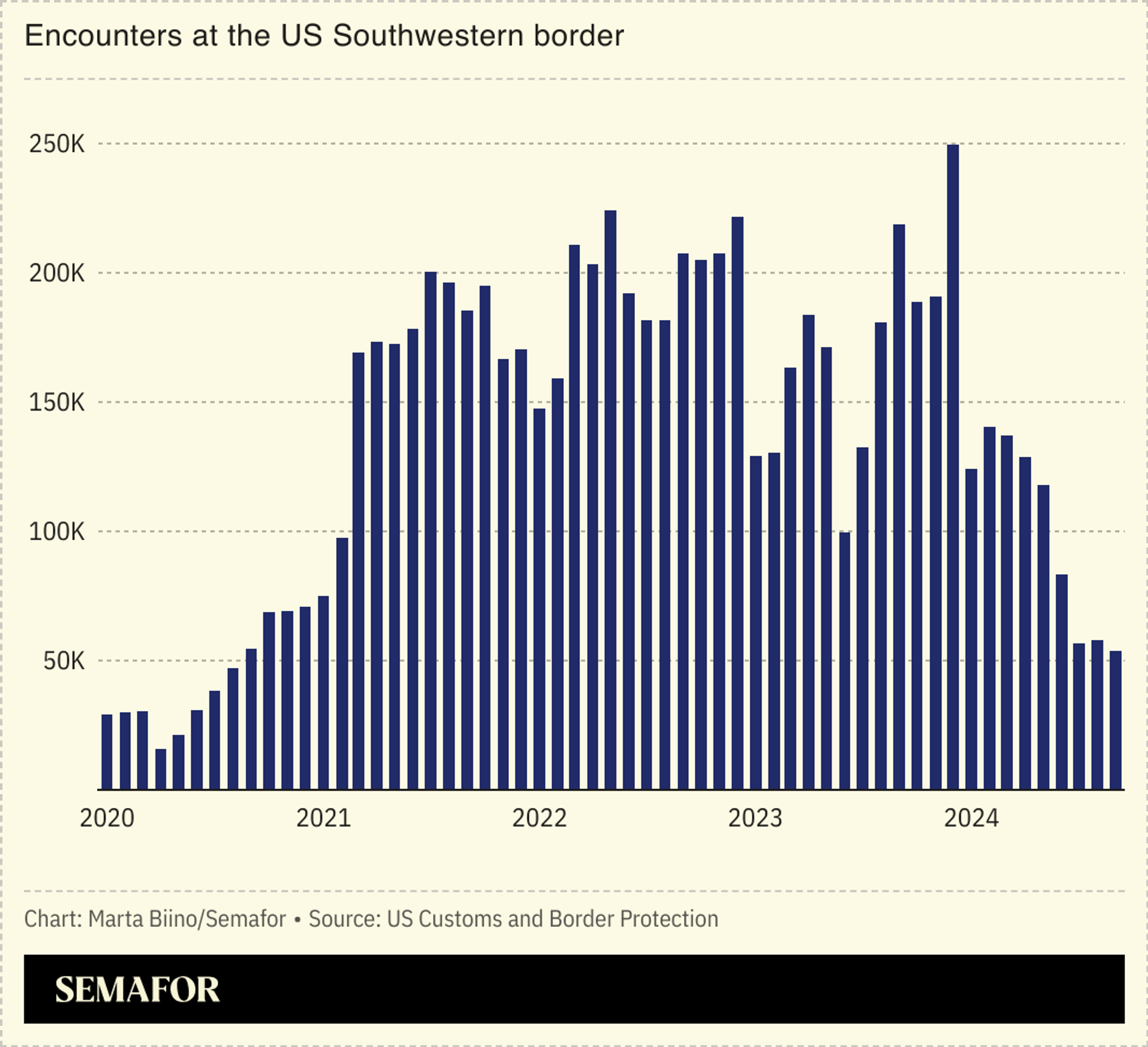The News
Immigration remains a central theme in the US presidential election that is a week away.
Donald Trump ended his widely-criticized New York rally on Sunday with anti-immigration rhetoric, while Kamala Harris has promised more border restrictions, as she continues to adopt the Biden administration’s hardened stance towards illegal immigration.
It’s a key issue for voters: A February Gallup survey showed that more Americans considered immigration the most important problem facing the country, while a June poll found that 55% of Americans wanted it to decrease, the highest percentage since the weeks after the 9/11 attacks in 2001.
The tougher US stance mirrors a global rightward shift on immigration, but analysts say some of the more extreme proposals, like mass deportations, threaten to diminish Washington’s soft power in Latin America, and could have repercussions on the country’s economy.
SIGNALS
Mexico’s migrant crackdown takes some of the heat off Democrats
Mexico’s largest ever migration crackdown — resulting in the number of migrants apprehended at the US border dropping to its lowest level since 2020 recently — has helped the Biden administration, and in turn Kamala Harris’ campaign. “A border perceived to be out of control is fuel for Donald Trump,” an immigration expert told Reuters, but Mexico has helped throw “water over that fire.” Mexico itself is also seeing the effects of the policy, the Financial Times reported. More migrants are setting up camps in cities across the country instead of clustering in dangerous border towns:“Maybe 18 months ago it wasn’t common to see these street camps in Mexico City ... now it’s normal,” the confounder of a migrant non-profit said.

Mass deportations could ‘wreak havoc’ on US economy
Trump’s plan of conducting the largest deportation operation in US history would “wreak havoc” on the economy, a labor expert told the NerdWallet blog. The American Immigration Council estimates that undocumented workers contributed more than $75 billion in taxes and almost $30 billion in Social Security and Medicare in 2022. Mass deportations would disrupt the US food supply chain given agriculture’s reliance on undocumented workers, Grist reported. The construction sector, which is already struggling with a labor shortage, would also take a “significant hit,” an economist told NBC News, particularly in the Sun Belt, where reliance on immigrant work has helped keep housing prices down.
US immigration curbs reflect global rightward shift
The Biden administration’s adoption of immigration curbs once eschewed by Democrats reflects the country’s shift to the right, regardless of who wins in the election, Semafor’s David Weigel argued. In their fight against Trump, “Democrats are making rhetorical and policy concessions that they didn’t want to, or think they needed to, in 2016 and 2020,” he wrote. This shift also mirrors a global trend, Al Jazeera reported: Left-leaning governments in European countries have been cracking down on immigration “in a scramble to obtain votes and political support, with the argument that, unless they adopt these policies, the far-right will take over,” a human rights expert said. Nationalist parties have “dominated” in polls across the continent in recent elections, Politico reported.

